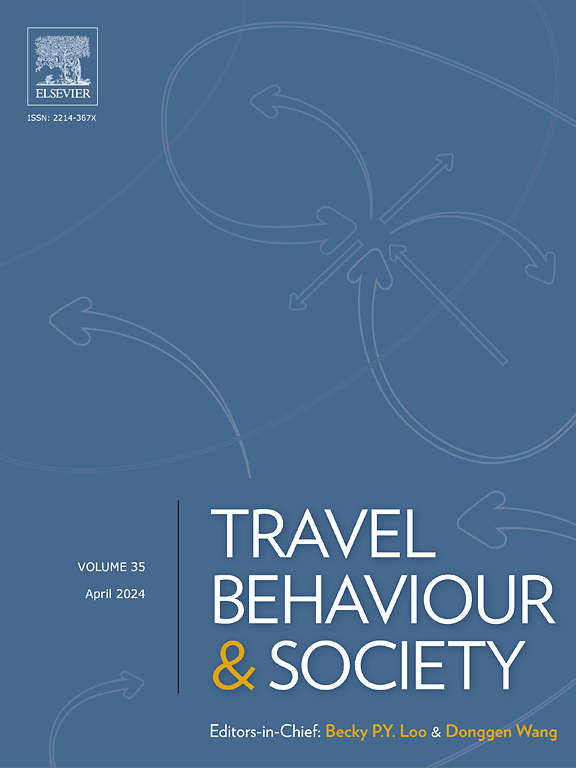高峰时段路线选择的异质性:对出行需求管理的影响
IF 5.7
2区 工程技术
Q1 TRANSPORTATION
引用次数: 0
摘要
交通拥堵给大都市地区带来了巨大的经济损失和环境挑战。因此,城市纷纷实施出行需求管理(TDM)策略,以缓解高峰时段的交通拥堵问题。虽然已有研究调查了个人在通勤期间如何根据 TDM 激励措施做出决策,但对上下班出行路线选择差异的研究却很有限,这使得政策的效果大打折扣。本研究旨在利用 3,000 多辆汽车的轨迹数据填补这一空白,研究时变特征、路线特征和建筑环境因素对路线变化的影响。结果表明,快速路比例、出行成本、出发地和目的地的道路密度等因素对早晚通勤路线变化的影响相似。然而,出发时间、旅行距离和红绿灯数量对两种情景下路线变异性的影响却大不相同。这项研究为优化路线选择和通过先进的 "行车需求管理 "措施缓解高峰时段的交通排放奠定了基础。有了更详细、更周密的政策,市民就能以更可持续、更高效的方式,在井然有序的道路网络中享受城市交通。本文章由计算机程序翻译,如有差异,请以英文原文为准。
Heterogeneity in route choice during peak hours: Implications on travel demand management
Traffic congestion has imposed considerable economic expenses and environmental challenges on metropolitan areas. Consequently, cities have implemented Travel Demand Management (TDM) strategies to mitigate this issue during peak hours. Although studies have investigated how individuals make decisions during commuting in response to TDM incentives, there is limited research on differences in route choices between trips to and from work, making the policies less effective. This study aims to fill this gap by using trajectory data from over 3,000 vehicles and examines the impacts of time-varying features, route characteristics, and built environment factors on route variability. Results indicate that factors such as expressway proportion, travel cost, and road density at the origin and destination locations have similar effects on route variability during morning and evening commuting. However, departure time, travel distance, and the number of traffic lights significantly differ in impacting route variability between the two scenarios. This study provides a foundation for optimizing route choices and alleviating traffic emissions during peak hours through advanced TDM measures. With more detailed and deliberate policies, citizens can enjoy urban mobility within a well-organized road network in a more sustainable and efficient way.
求助全文
通过发布文献求助,成功后即可免费获取论文全文。
去求助
来源期刊

Travel Behaviour and Society
TRANSPORTATION-
CiteScore
9.80
自引率
7.70%
发文量
109
期刊介绍:
Travel Behaviour and Society is an interdisciplinary journal publishing high-quality original papers which report leading edge research in theories, methodologies and applications concerning transportation issues and challenges which involve the social and spatial dimensions. In particular, it provides a discussion forum for major research in travel behaviour, transportation infrastructure, transportation and environmental issues, mobility and social sustainability, transportation geographic information systems (TGIS), transportation and quality of life, transportation data collection and analysis, etc.
 求助内容:
求助内容: 应助结果提醒方式:
应助结果提醒方式:


